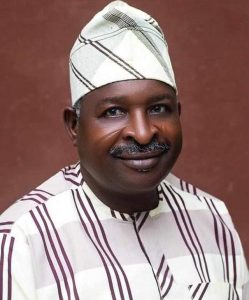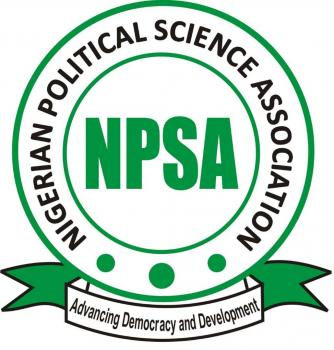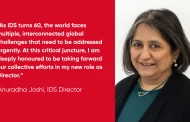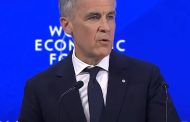Half way or so into the Zoom session, the question as to why it was not being transmitted Live crossed my mind again. If that was not the conversation whose national and even global audience should be participating, then which other conversation might be that? Is it possible it was not Live on television probably because the Nigerian Political Science Association, (NPSA) does not have the resources? That would not be surprising. Or was it the case that there exists a protocol/convention which forbids such outing, irrespective of whether the conversation offers a lot in terms of the clarity on some of the dynamics playing out? The point here is that if the quality of the conversation remains at the level of clarity it is now, efforts should be made to make it a national television event, PROVIDED that will not make it a monotonous, all comer affair quickly.

Prof Zabadi
It was a powerfully led session, the second in the series the NPSA has arranged on the 2023 General Elections. The NPSA has not just arranged the series in a very timely manner, it has also selected some of its best by any standards to lead the discussions. The series kicked off on March 21st, 2023 with Prof Jibril Ibrahim providing an overview. Some students missed that. They were to have also missed the second in the series if they hadn’t overshot their sleep quota for a booked engagement some one hour away. It was considered potentially rewarding to attend the NPSA function while awaiting the Day of Judgment for missing the fixed engagement.
Professor Istifanus Zabadi of Bingham University, Karu near Abuja who led the second session on the subject matter of “The Presidential and National Assembly Elections: Trends, Controversies and Recommendations” is one of their best. He has been in the right places at the right time as far as Political Science training is concerned: SBS, Zaria in the mid-1970s; ABU, Zaria around that time, the London School of Economics and Political Science (for his and MSC and PhD) which was mixed with a teaching stint at Birbeck University of London in the early 1990s. Although he still schooled when International Relations knew only four theories – Liberalism, Realism, Marxism and the International Society theory – he came to town at this lecture well-heeled about the tensions at work in the subject matter. It was a pleasure listening and consuming the broth he served, including the salt added to it from the audience, particularly Prof Adele Jinadu. Just look at the contrast. Adele Jinadu is much older than Zabadi but more combative while Zabadi is more powerful in subtlety. Interestingly, they are all partly Made – in – Britain academics and they observe the protocol very smoothly. Zabadi’s is one lecture difficult to locate a core because he said several equally big and important things. The way out might be to report him and let the reader re-arrange his takes in his or her own ranking order.
His preliminary is the atmospheric of the fear and trepidation with which every election cycle approaches. It is always as if the election would be the last, aggravated by merchants of tension, the media and elite generally. The absence of a shared national aspiration complicates this because a polity moderated almost only by material benefits of office as seen by each set of actors such as regional groupings and irregular political actors is inherently vulnerable to use of whatever tactics to gain control of power. The sense of do – or – die might have been less if the Federal Government and the Independent National Electoral Commission, (INEC) had not over assured about how qualitative the 2023 election was going to be. People took the assurances too seriously, trooped out to vote and be voted for but only to confront thugs, manipulation and all manner of electoral frauds. Of course, there were background issues of the ample opportunities INEC had to test its preparedness, using the off-cycle elections in Ekiti and Osun. INEC might have been prepared but the 2023 Presidential and National Assembly Elections still witnessed “ballot snatching, voter intimidation and suppression, incidences of over-voting and all sorts of malpractices to achieve a predetermined outcome”, said the lecturer. Then the generalized insecurity across the country, a realm over which INEC has no control. INEC offices were even burnt or destroyed in several places. This should be good enough for a summary that is not allowed to eat too deep into a paper the NPSA is surely publishing.
What were the trends that Zabadi identified? This is the more discursive section of the presentation. They will be mentioned only in passing. Political parties, henchmen and notables or godfathers, said Zabadi, did not take into consideration the fluidity of the social and of electoral dynamics. His argument is that the electors are not a captive audience of the elite, citing the unworkability of incumbency in many electoral spaces or the bursting of privatization of power in a particular electoral enclave in Nigeria. Second is a poor gauging of the social mood. For him, Nigeria has been a season of discontent since 2020, signified by nothing better than the ENDSARS siege. It is not a movement of ‘lumpen elements’ “by its peaceful nature, coordination, spread and the charter of demands that it made”. He goes further to cite the “looting” (or was it redistribution?) of Covid-19 palliates which government officials warehoused away from the people. To read these events as actions of miscreants as government officials were inclined to is to, in Zabadi’s view, misread “the mood of the youth on the imperative to change the situation in Nigeria”. He bears this thesis out in how the ENDSARS movement transformed into the Obi-dient Movement, giving the Labour Party the electoral visibility it has had. His conclusion: This is a trend that will continue to manifest in elections into the future: politicians and their governments would be punished for poor governance.
The third trend on his list is his view that the 2023 Presidential and National Assembly election is distinguished by the reification of the ‘third force’, shattering the invincibility of the establishment and the established parties. One consequence is the emergence of a government that can be conceptually categorized as a minority government: the winner is a product of 36%, contrasting with the 75% in 2007, for example. It means that the opposition parties control the rest of 64%, which is completely new in Nigeria. Also, there would now be eight political parties in the National Assembly, particularly the Labour Party, New Nigerian People’s Party and the Social Democratic Party. And each of the three leading candidates won in 12 states. The diversity profile brought up by the election stretches to governors of Abia, Benue, Enugu, Plateau and Taraba states as well as former governor, Tanko Almakura of Nasarawa State all losing the election and being ineligible to go to the Senate which he says has become the ‘retirement home’ of two-term governors. What is at stake in all these is a legitimacy gap that the winner must crack.

Asiwaju will be a ‘minority’ government, conceptually speaking unless he can ‘win’ the 64% that didn’t vote for him/APC
He brings the role of religion, ethnicity and zoning to his list, the tremendous enthusiasm they provoked but only for the anti-climax to occur in the very low voter turn-out. Next came his argument that in parties such as the LP, the NNPP, the SDP and the PRP might be the nucleus of the rise of parties that can actualize the craving for an egalitarian order as opposed to existing dominant parties which lack ideological commitment and are only “Special Purpose Vehicles” for those with inordinate ambition.
The next trend is the rising role of the civil society which he commended. And that of technology at both the level of INEC, CSOs and the political parties. He notes the fact that the 2023 presidential election has not been followed by a post-election violence of the type that seized Brazil last January. It is a trend he wishes would continue. The last trend he identifies is the emergence of election tribunals as part and parcel of the electoral process, with its promises and implications.
In shifting to controversies, Zabadi lists the conduct of the elections, INEC’s under-performance in relation to the elaborate assurances ahead of the election, the question of uploading results from polling units and the contentious issue of 25% win in the FCT. He then made his recommendations, among them the continuous improvement of the use of technology; adjusting the voting time from 8. 30 am to 2.30 pm to 8. 00 am to 5. 00 pm; changing the method of appointing INEC henchmen (in which he associated himself with the option of looking towards South Africa’s model as reportedly recommended by Prof Jibrin Ibrahim at the same session last week), next NASS passing the law against electoral offences and the need for a high level independent investigation of what actually happened that results from polling units were not uploaded.
It was a long haul in the course of which a lot had been put on the table. As is the case, he who goes to talk has also gone to hear. But it was a friendly conversation all through. There were no ‘wolf warriors’, perhaps because that culture has died in Nigerian scholarship and/or because there was an elephant in the room – Prof Adele Junadu – in whose presence nobody would want to do what could be considered to be out of protocol.
One major re-reading of Prof Zabadi’s presentation was the idea that the engagement with the presidential election should now move from what happened to why they might have happened. In other words, much of what Zabadi has put on the table are, in the view of Prof Adele Jinadu, instant analysis or hypotheses about what happened. This speaker argues with vigour that Nigeria does not lack a national ideology because Chapter Two of the Constitution has the Fundamental Objectives and Directive Principles of the State Policy clearly declared as such. What has happened is that a different ideology has been endorsed and the entire Nigeria has been co-opted. Hence, government officials talk endlessly about privatization, public-private partnership without even knowing or being bothered that they are violating the constitution. So, Jinadu says the Nigerian society might be anti-ideological but the political parties are not.
Prof Jinadu stressed the primacy of individual’s character as a variable deserving of tighter scrutiny. According to him, the character of the individual contestants matter, including the collective character of the ENDSARS. It is not necessary for someone to have been convicted before character can be a variable, saying that in many polities, people step down once character has been questioned. Similarly, he questions wholesome endorsement of what election observers say or do, arguing that they are not flat actors without their own gaze. The gaze could sometimes include consciously pushing for postponement or cancellation of the election. He also reads a connection between foreign observers and those who want to delegitimize the 2023 election. They also make sweeping generalisations that he says has been contradicted by an analysis of the 2023 election that he has been involved and which has, however, shown that the much complained against late arrival of election materials was not up to 15%.
The point, as far as he is concerned, is that conduct of election in Nigeria has a context defined by a framework he attributes to Prof Okey Ibeanu: Structure, Culture and Infrastructure. He couldn’t remember the fourth concept in the framework. He extends the analysis to underdevelopment as an autonomous factor in the conduct of elections in Nigeria. He speaks: INEC requires over a million (irregular?) staff, about 40, 000 vehicles, (hopes I got him correctly), 40 boats for the Riverine areas, 4000 motorcycles”. It is not always crease-free to get this to work because the drivers or motorcycle owners are likely to come up the night before the election with complaints of batteries that are either not working or been stolen or something crazy to the extent that they could paralyse the conduct of the election at that hour. So, he concludes that there are intervening variables between planning and implementation.
Clearly, the issue of lack of a shared binding narrative or overarching ideology attracted attention. Three other speakers joined. Many asked divergent questions. Dr Agwadu (will fill in the institution as soon as known) wondered why all the parties that should be speaking radicalism were not. Peter Obi was talking of privatization instead of nationalization, of commercialization instead of subsidy; Abiola of the PRP was talking market economy and even Barrister Adewale of the Social Democratic Party. So, the speaker is not sure if all the “radical” parties were not all overtaken by the market economy bogey.

Prof Adele Jinadu
Prof Zabadi answers back to accept that there is an official ideology in the Constitution but that it has not played out. In other words, he was saying it has not been articulated by the civil society, radical activists and other stakeholders such that a hegemonic meaning of it prevails. Without that, the elite, especially the Obasanjo regime, smartly constructed its own meaning of the provision which is prevailing now. A provision in the Constitution is not enough. Those who implement the Constitution will follow it only if they know they could go to jail if they didn’t follow it. What will take them to jail is not the provision in itself but the power relations in the society.
Away from ideology controversy, Prof Yusuf Zoaka of the University of Abuja wondered about the legitimacy of the election if there is so much wasted votes. By wasted votes here, he didn’t mean votes that became invalid but the 64% that did not partake in the election of the winner. In other words, he too, like Zabadi, is talking conceptually. His second question was on the phenomenon of professors being used to announce problematic election results. How could this be the case if professors were assumed to embody or be the “bastion of truth”, he asked. He is not comfortable with the refrain of ‘Go to court! Go to court’ because, as far as he is concerned, election should end at the polling unit.
Well, he got two replies. One of his colleagues told him the NPSA should look at the issue of the role of professors from the binary prism of good versus bad ones. That is, the NPSA should, for example, isolate and celebrate the lady professor who held out against electoral manipulation in Abia State Governorship poll while condemning and shaming the one who is perceived to have played along with the devil in Enugu Governorship poll. Zoaka’s second answer came from Prof Hassan Salihu, NPSA President who said the empirical situation should be factored in. He was referring to the fact that many professors merely announce what had been collated by the technical staff and ready for announcement. In other words, it might not be that every professor knew whether the result being announced has a ‘K’ leg.
As in such an audience, many other questions and comments were raised. The last that can be taken here is Jinadu’s comment on the employability of technology to enhance election outcome in Nigeria. His observation is that other societies are not plunging headlong into it. The testimony from India, for instance, suggests that it took India about three decades of trial and error before the current level of usage was attained. Same or near same with Mexico. A country like Canada is going back on technology in election and there are those like Germany that are not into it at all. The hint here is that if Nigeria could resist those who want to sell technology, she would be more calculated on the technology-election nexus.
Prof Zabadi took his leave with few more answers. In one of them, he is sure that ‘wasted votes’ will dog the president-elect. The president-elect would have to ‘win’ the 64% missing votes. He has to legitimize himself in those audiences, implying quick statesmanship. He is all for criticizing the role of professors because, in his view, “all institutions in this country are sick. We cannot criticize the judiciary alone or INEC alone. That is why we are criticizing professors and the institution they come from”. He sees the critical trend as good because, as he puts it, “we should not just tolerate thins. We are where we are and it is because we chose to keep quiet most of the time”
As argued in the opening sentences, the session should have been transmitted Live because this report can only be a patch work. No report can capture the non-verbal aspects of communication, the embodied experience of the online space and all of it. But this report gives those who were not there an idea of what might have transpired. NPSA President, Prof Hassan Salihu must have been very happy at the end of the day.
*This report will continue to be updated to fill name gaps, inaccuracies and/or misrepresentations that might be pointed out by attendees and readers. For now, this is the best that can be put out.




























